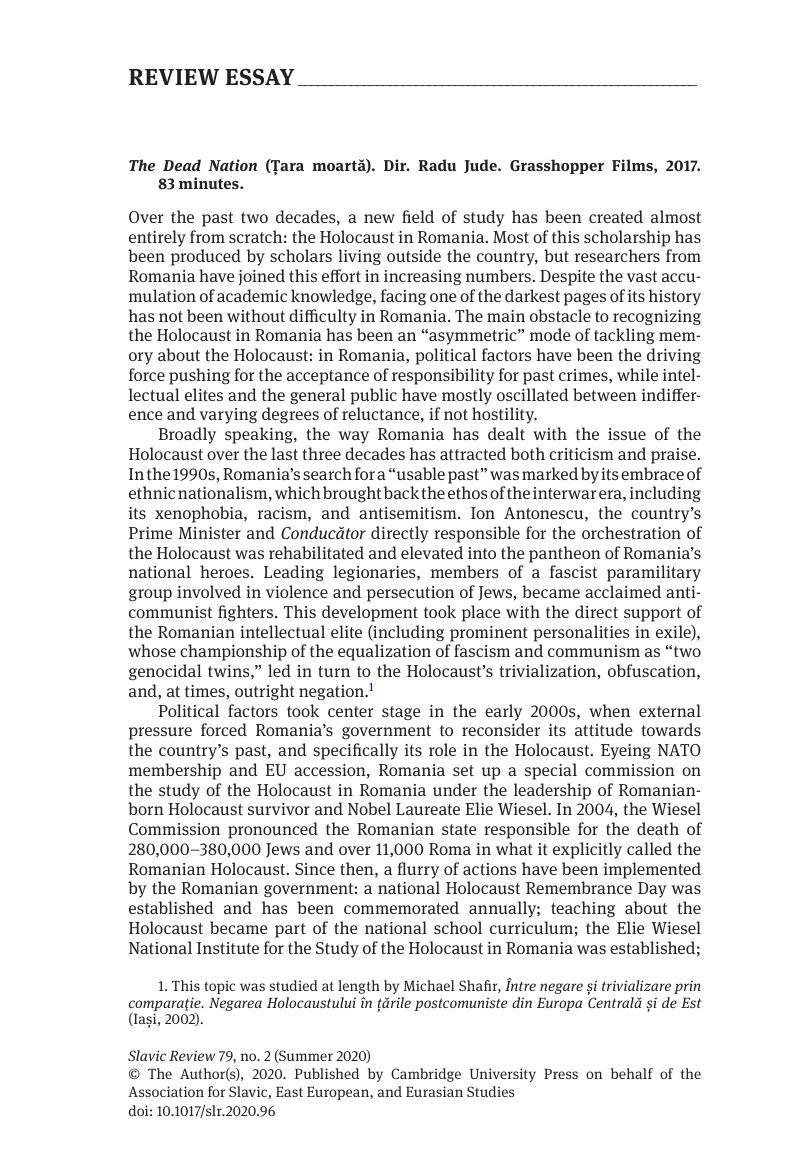No CrossRef data available.
Published online by Cambridge University Press: 10 August 2020

1 This topic was studied at length by Shafir, Michael, Între negare și trivializare prin comparaţie. Negarea Holocaustului în țările postcomuniste din Europa Centrală și de Est (Iași, 2002)Google Scholar.
2 Simon Geissbühler has argued that, among other issues, the state of neglect of many Jewish cites, the reluctance to mark mass graves, and the hostility towards a Jewish Holocaust museum in Bucharest should be read as signs of unwillingness to accept the past. Geissbühler, Simon, “Wanting-Not-To-Know about the Holocaust in Romania: A Wind of Change?,” in Florian, Alexandru, ed., Holocaust Public Memory in Postcommunist Romania (Bloomington, Ind., 2018), 151–72CrossRefGoogle Scholar.
3 A campaign calling for the canonization by the Romanian Orthodox Church of the “Saints of Prison,” nearly all of them former Iron Guard Members, is a clear example of this fact.
4 Alexandru Florian, “Memory under Construction: Introductory Remarks,” in Alexandru Florian, ed., Holocaust Public Memory in Postcommunist Romania, xxvi.
5 More analysis of the Romanian New Wave cinema in: Pop, Doru, Romanian New Wave Cinema: An Introduction (Jefferson, NC, 2014)Google Scholar.
6 Stefan Both, “Controversă. Florin Iepan a lansat documentarul ‘Odessa’ despre ‘Holocaustul românesc.’ Istoricii spun că cifrele masacrului sunt o ‘manipulare.’”Adevărul, March 13, 2013.